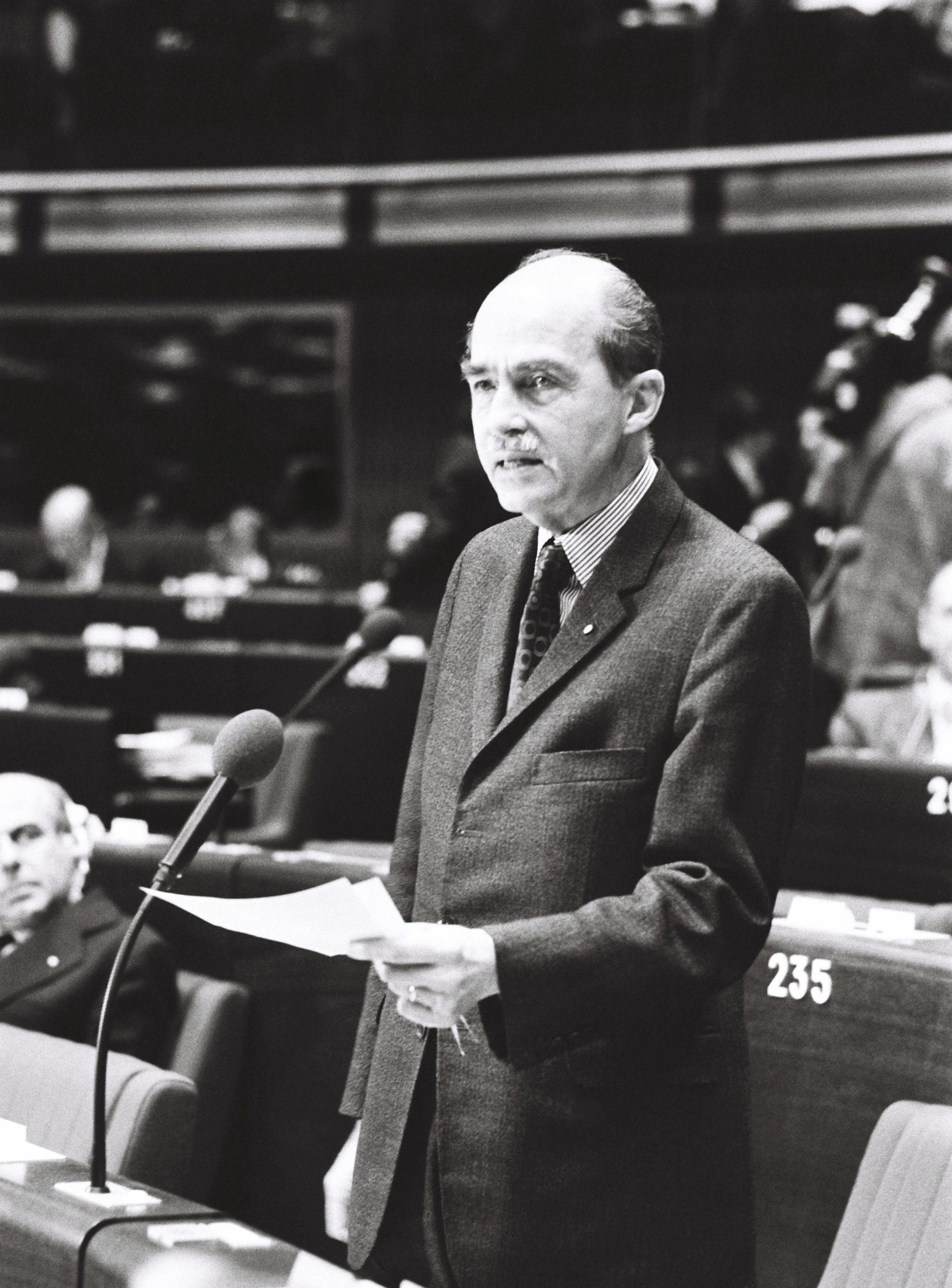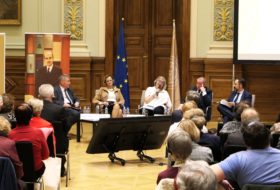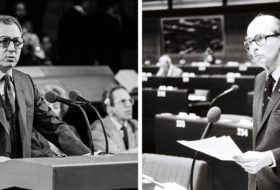The Council of Europe launched the European Day of Languages in 2001 to encourage language learning across the continent, promote linguistic diversity and further deepen dialogue between nations and cultures. In several interviews, Otto von Habsburg emphasised that multilingualism is the basis of European culture and repeatedly stressed the importance of language skills in his writings and lectures.
Our namesake’s competence in languages impressed not only his colleagues but also his political opponents; the polyglot archduke was fluent in German, French, Hungarian, English and Spanish and had no difficulty speaking Italian, Portuguese and Croatian. However, even in the light of his linguistic proficiency, it was a particular sensation when, at the plenary session of the European Parliament on 14 November 1979, he responded in Latin to a speech given in Latin by his Italian colleague Mario Capanna. The Italian far-left MEP, who had made a name for himself as one of the leaders of the 1968 student uprisings – and who had certainly honed his language skills during his philosophical studies in Milan – caused a moment of panic in the interpreters’ booths with his short speech. Only Otto von Habsburg was able to react to Capanna’s expose, which was originally intended as an annoyance. In a few sentences, he stressed that, although he did not agree with the content of his colleague’s statement, he was pleased that his fellow MEP had chosen “a truly European language” to express his views.
The considerable classical literacy of our eponym – which he owed largely to his Benedictine teachers, including Father Jácint Wéber, who taught him Latin – cannot be better demonstrated than by the last sentence of his speech, in which he uses an excerpt from Virgil’s Aeneid to entrust the preservation and cultivation of Latin to posterity. A few lines of witty repartee attest to Otto von Habsburg’s view that intellect and political activity are closely linked, the former, with a touch of humour, being refreshing in the most arid political debates.
However, what made the debate truly special was not its content, but the fact that two politicians with very different values and habits on opposite sides of the political spectrum were united, if only for a moment, by our common European heritage, by their knowledge and love of Latin. His speech in 1979, which is reproduced in full below, not only enhanced Otto Habsburg’s reputation among his colleagues but has remained a source of lively interest for linguists and philologists ever since.
Eszter Gaálné Barcs
Bence Kocsev
What is the Real Lingua Franca
We would like to thank Dr. László Schramek, Chief Archivist and Director of the Pest County Archives of the Hungarian National Archives for his help with the translation.
Photo by European Parliament Multimedia 19800300019012


